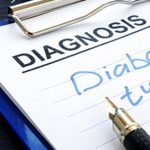
Telemedicine could be a better way to get opioid addicts to seek out and stick with treatment, a new study suggests. People referred to an addiction treatment clinic following a telemedicine evaluation were more likely to show up to their first appointment than those whose referral resulted from an ER visit, researchers reported recently in the Journal of Substance Use and Addiction Treatment. Those referred to addiction treatment through telemedicine also were more likely to stick with the program for at least a month. “Our study shows that patients referred from telemedicine are more likely to follow up initially, and still be retained in care at 30 days,” said lead researcher Dr. Joshua Lynch, an associate professor of emergency medicine at the University of Buffalo in New York. Long-term recovery from addiction requires consistent care, involving repeated outpatient visits as well as continuing use of treatment drugs like buprenorphine or methadone, researchers said. “Patients with opioid use disorder often seek care in times of crisis in emergency departments,” said senior researcher Dr. Brian Clemency, a professor of emergency medicine at the University of Buffalo. “However, the emergency department may not be a good option for all patients. We wanted to see if telemedicine could be used as a gateway to ongoing care.” For the study, researchers analyzed data on nearly 400 patients referred to addiction… read on > read on >













-150x150.jpg)




